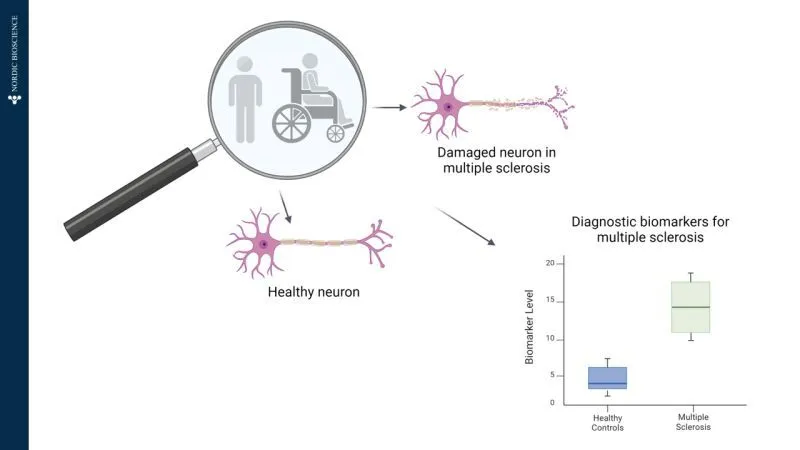The Potential of Blood-Based Biomarkers in Multiple Sclerosis
January 14, 2025
Multiple sclerosis (MS) is a chronic inflammatory disease in which the immune system attacks the myelin sheath, a protective layer surrounding nerves, which disrupts the communication between the brain and the rest of the body. The diagnosis of MS is often delayed because of its symptoms and diagnostic tests overlapping with those of other diseases.

To address this challenge, there is a need for biomarkers that precisely and accurately quantify disease activity, which can provide more accurate results. Blood-based biomarkers quantify fragments of proteins involved in MS pathophysiology, which is why the aim of this this study was to investigate their potential as diagnostic biomarkers.
In this study, we evaluated three such biomarkers: BGM (biglycan degraded by matrix metalloproteinases (MMPs), NIC (cathepsin S-degraded nidogen), and SPARC-M (MMP-degraded secreted protein acidic and rich in cysteine). Testing on healthy donors and patients diagnosed with MS revealed that SPARC-M was the most effective diagnostic biomarker, with an AUC of 0.875.
In clinical management, protein fragments like SPARC-M could provide a specific protein fingerprint for MS. Therefore, blood-based biomarkers such as SPARC-M can aid in disease diagnosis, understanding pathogenesis, monitoring progression, and tailoring treatment strategies in clinical practice.
Article: Diagnostic potential of blood-based biomarkers in multiple sclerosis



